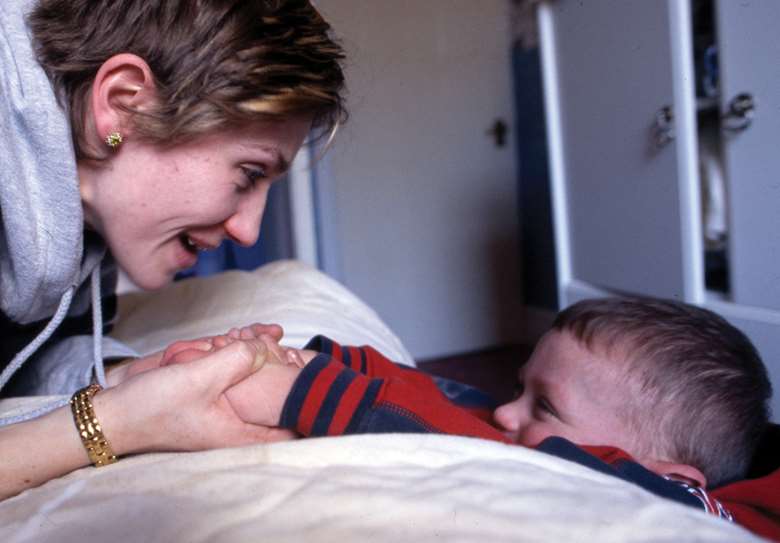'The Family Nurse Partnership is making a difference'
George Hosking
Tuesday, December 8, 2015
Analysis of the Family Nurse Partnership underplayed the programme's benefits, says an early years expert.

Two national evaluations of the Family Nurse Partnership (FNP) programme were published this year: one in the Netherlands and one in England. The conclusions could not have been more different.
The Dutch findings say: "We conclude that the Dutch version of the FNP, VoorZorg, is an effective intervention for young disadvantaged pregnant women that prevents child maltreatment, and improves home environment and child behavioural problems."
The study also concluded that, in view of the high societal cost of child maltreatment, the programme was cost-effective.
The English study had a very different focus: it used four medically-oriented measures - birth weight, smoking in pregnancy, emergency child hospital visits, and gap to second pregnancy - finding the programme was not cost-effective.
It summarised:"In conclusion, we show substantial additional cost, no benefit for policy-relevant main outcomes and some advantage for a few secondary outcomes. Programme continuation is not justified on the basis of available evidence, but could be reconsidered should supportive longer-term evidence emerge."
How do you reconcile these two conflicting conclusions about essentially the same programme? And what does it mean for the future of FNP in the UK?
It would be tragic if policymakers and commissioners respond by condemning FNP on incomplete criteria and/or an evaluation over too short a timescale. That said, we welcome the recent national evaluation as a wake-up call to strengthen the programme's focus on reducing child maltreatment and welcome the recommendation that evaluation be continued.
What was targeted and measured?
It would be valuable to explore how the Dutch version of FNP proved more effective, even in the short term, than the UK one. It found higher levels of breastfeeding and lower levels of maternal smoking and partner violence.
One key difference between the versions is the selection criteria: first-time teenage mothers in the English study, first-time mothers up to age 26 with low educational attainments in the Dutch. Targeting the right recipients was the theme of the 2013 review by Vicki Jackson and Professor Kevin Browne, a leading UK researcher on child maltreatment.
They argue FNP can be targeted more effectively than on maternal age to yield a greater return on investment. They say targeting risk factors more common in abusive families would enable the number of health visitors to reach three times the number of abusive families, prevent more child maltreatment and significantly improve FNP's cost-effectiveness.
That the English evaluation found no impact on its primary measures, which were medical in nature, is perhaps not surprising, given the NHS's strong focus on medical and physical aspects of child wellbeing.
The NHS gives less attention to the social and emotional dimensions of child development and this may be why the study found positive outcomes from the FNP programme on relationship quality, child cognitive development, child language development and on maternal depressive symptoms.
The significance of secondary impacts
The UK authors deem the positive "secondary" impacts "small". We would not deem "small" the differences in mothers' concerns about their child's language development at 12 months (one in five children in the control group, almost double the FNP level) and cognitive development at 24 months (one in eight children in the control group, more than one and a half times the FNP level).
The national evaluation found that 13.6 per cent of FNP families needed safeguarding procedures, compared to eight per cent in the control group.
Given World Health Organisation and NSPCC estimates of 20 per cent or more for child maltreatment levels, this may be a measure of success not failure.
Physical health is fundamentally important, and the earlier in life this is secured, the better. But the factors deemed "secondary" in the UK evaluation are those with the strongest effect on social and economic outcomes for society.
The issue carrying the highest potential costs is conduct disorder, because it impacts educational achievement, offending, persistent offending and substance use.
Conduct disorder is strongly associated with children who suffered abuse or neglect, or witnessed domestic violence. The study estimated the cost to businesses and households by those who had serious conduct disorder in childhood is £20bn a year in the UK.
We suggest that this, together with the successful Dutch experience of FNP, underlines the need to increase FNP's focus on reducing maltreatment and promoting children's social and emotional development.
With all respect to the UK researchers, we hope their conclusion that FNP is not value for money will be revisited with a far wider focus than the purely short-term medical measures.
It is certainly not time to throw this particular baby out with the bath water. What can be done in the Netherlands can be done here.
George Hosking is founder of WAVE Trust
GUIDE TO THE FNP
- The Family Nurse Partnership (FNP) is a voluntary home visiting programme for first time young mothers, aged 19 years or under.
- A specially trained family nurse visits the young mother regularly, from the early stages of pregnancy until their child is two.
- The FNP programme aims to enable young mothers to have a healthy pregnancy, improve their child's health and development, and plan their own futures and achieve their aspirations.




